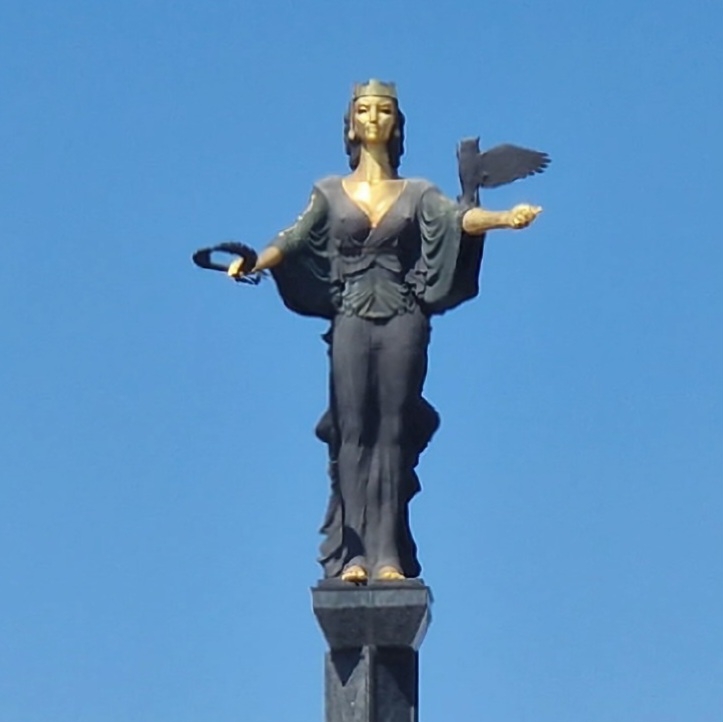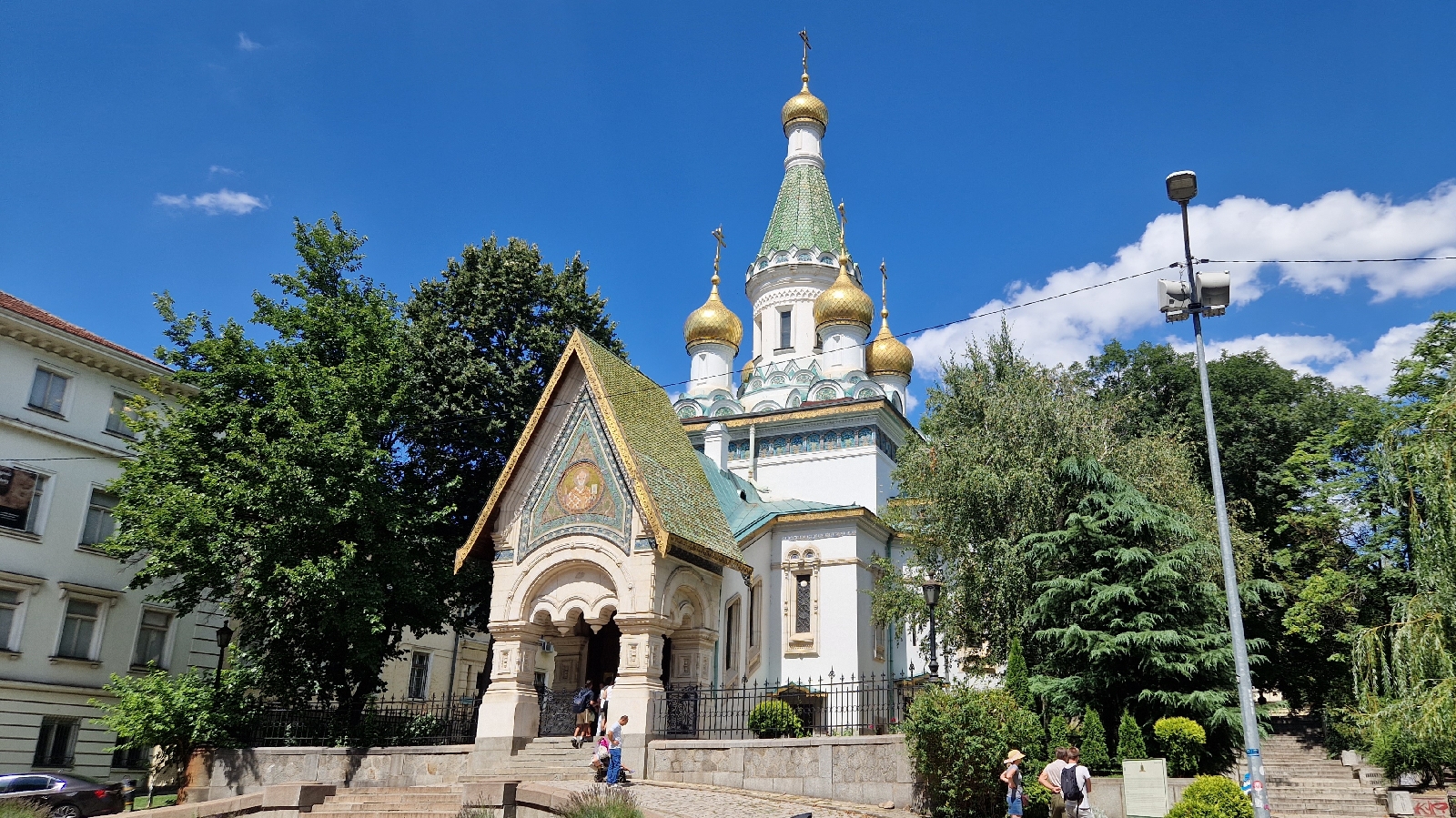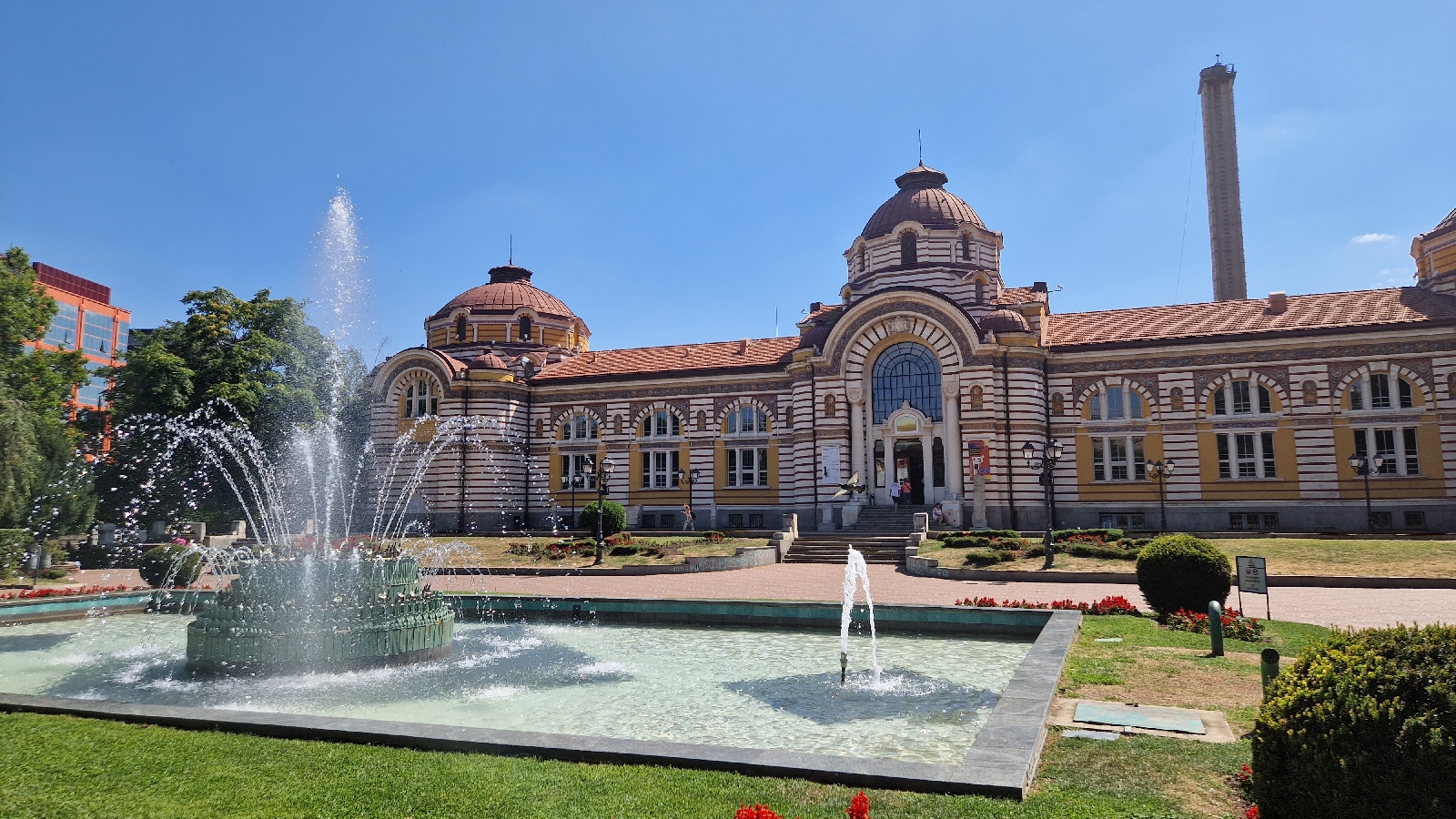I travelled from Greece to Bulgaria by bus – quelle horreur! – as there are currently no international trains to or from Greece.
The first bad surprise was that Bulgaria is not in the Schengen Area, so the queue at the border was horrendous. Two hours it took to get to the top of the queue, then everyone on the bus had to get off to be controlled by Greek and Bulgarian police.
The Bulgarian police officer asked where I was going. "None of your f***ing business, I'm a citizen of the European Union," I said in my head. "Sofia," I said out loud.
After that, things got a lot better, I'm happy to report.
Sofia, known as Serdica in Roman times and Sredets in the Middle Ages, is the capital of Bulgaria. Named after the church of Saint Sophia, the oldest, though not the most important, in the city.
Sofia herself
This is my first time in Bulgaria, so I didn't really know what to expect. I did take the precaution of getting advice from a native on which neighbourhood to choose for accommodation, however. She gave me good advice.
My hotel is right next to the parliament, the presidential palace, and multiple ministries and embassies. A bit like the 7th and 8th arrondissements in Paris, but fun.
On a stroll around the city on my first evening I discovered a great bar called After 5.
The barmaid was very friendly as were the two locals I ended up chatting with. One of them, Nikolai, is quite a history buff and very proud of his Bulgarian heritage. He filled me in on a certain number of points.
I visited only two of the many churches in Sofia: the Cathedral of St Alexander Nevsky (a Russian), and the Church of St Nicholas the Miracle-maker (aka Santa Claus, a Greek).
Cathedral of St Alexander Nevsky
Church of St Nicholas the Miracle-maker
I discovered that Orthodox churches don't have a lot of seats or benches.
The origins of Sofia go back several millennia. The Regional History Museum – housed in the former Central Mineral Baths – tells the story of the city from the Stone Age to the modern era, through the various regimes that have risen and fallen (with a rather conspicuous gap for the period in the early 1940s).
Regional History Museum
The current temporary exhibition is on the theme of "Childhood through Socialism" – an eye-opener for a westerner like me.
Childhood through Socialism at the Regional History Museum
A more palpable view of the history of Sofia is at the archaeological site near Serdika metro station, where they discovered a whole street from the Roman period. They had the decency to preserve the site, which is now open to visitors free of charge.
Remains of Serdica
A charming city, I'll be back.
Next leg
On Saturday morning at 07.00, I take the train to Bucharest.








No comments:
Post a Comment
Please sign your comment. Thanks!